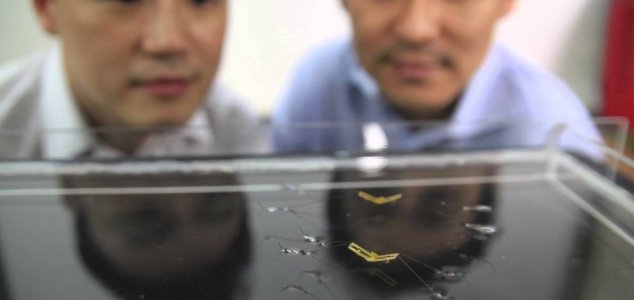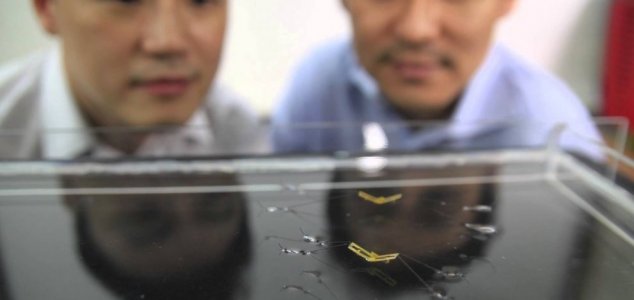
Researchers demonstrate their water-walking robots in a tank. Harvard University
The tiny robot works in much the same way as its real-life counterparts – water strider insects – which are able to stay afloat because their downward force never exceeds the surface tension of the water.
Measuring 2cm in length, each one is built from thin layers of material folded in to a ‘v’ shape with a spring running across it that when released enables the robots to jump in to the air.
Their design was based on studies of actual water striders found at a local pond.
“To explore [their] amazing semi-aquatic motility, we collected [the insects] and recorded them jumping on water in the laboratory with high-speed cameras,” the researchers wrote.
It is hoped that in the future it may be possible to use robotic insects like these to monitor pollution along streams and rivers where conventional monitoring equipment can be difficult to set up.
Originally posted 2015-10-26 12:14:04. Republished by Blog Post Promoter
Arindam loves aliens, mysteries and pursing his interest in the area of hacking as a technical writer at ‘Planet wank’. You can catch him at his social profiles anytime.














